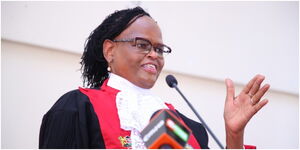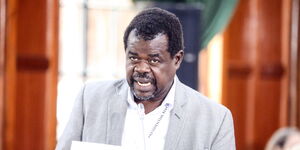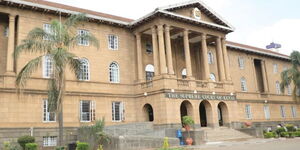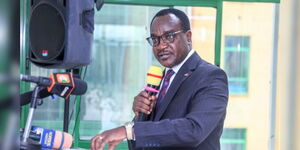In a move set to send shockwaves through the education sector, the National Treasury has unveiled sweeping budget cuts as part of the Programme Based Budget 2024/25, revealing slashes across various critical areas including Agriculture, Healthcare, Energy, Cooperatives, as well as Trade and Industry.
Among these sectors, education bears a significant brunt of the reductions. The State Departments overseeing Technical Vocational Education and Training (TVETs), Higher Education, and Basic Education are collectively set to endure a staggering budget decrease amounting to close to Ksh 57 billion in the upcoming fiscal year.
According to the unveiled document, TVETs face a loss of Ksh 2.94 billion, while Higher Education confronts a substantial reduction of Ksh 34.39 billion. Basic Education is not spared either, with a hefty cut of Ksh 19.43 billion projected for the next financial cycle.
Under the proposed allocations, TVETs are earmarked to receive Ksh 29.97 billion, Higher Education Ksh 120.13 billion, and Basic Education Ksh 139.14 billion. However, this comes amidst specific reductions within each subsector.
Notably, primary schools emerge as primary victims within the Basic Education domain, grappling with a Ksh 6.64 billion slash. The allocated budget for primary education stands at Ksh 25.68 billion, while secondary education sees a slight increase to Ksh 104.78 billion compared to the previous fiscal year.
Quality Assurance and Standards within Basic Education are also not spared, facing a cut of Ksh 1 billion, bringing their allocation down to Ksh 4.16 billion. Similarly, General Administration, Planning, and Support Services witness a parallel reduction, with their budgetary allocation dwindling to Ksh 4.55 billion.
The State Department for Higher Education doesn't escape the austerity measures either, with universities facing a loss of nearly Ksh 9 billion. This translates to an allocated budget of Ksh 118.82 billion, down from Ksh 127.5 billion in the preceding financial year.
Of significant concern are the 31 public chartered universities and four public university constituent colleges, heavily reliant on funding from the Higher Education kitty for their operational sustainability. The majority of the public universities are facing a cash crunch with owing statutory bodies and other creditors Ksh75 billion in pending bills, a figure that has doubled in two years.
However, amidst the overall reductions, there's a glimmer of hope for teachers. The Teachers Service Commission is set to receive a notable increase of Ksh 9.35 billion, aiming to bolster the hiring of 20,000 teachers in the current fiscal year, thereby addressing shortages and enhancing the teacher-student ratio.
Education CS Ezekiel Machogu pointed to the gravity of the situation, highlighting the unprecedented hiring drive under the Kenya Kwanza administration, with 56,750 teachers brought on board to ensure seamless operations within schools.
The responsibilities falling under the State Department for Basic Education encompass a broad spectrum, including the management of Basic Education Policy, administration of primary and secondary education institutions, curriculum development, and oversight of national examinations, among others.












